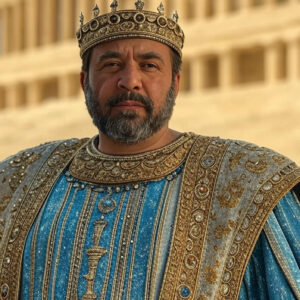Any one who lived during the Iraq War couldn’t help but become saturated with information about Iraq. For the first time in history, there were news reporters imbedded among the troops during the fighting. News was instantaneous. People sitting in their living rooms watched television as history was made. Folks in America heard from the soldiers, watched the firefights, and moved with the troops from place to place. Cities like Baghdad, Mosul, and Tikrit became as well-known as Chicago and Paris.
one who lived during the Iraq War couldn’t help but become saturated with information about Iraq. For the first time in history, there were news reporters imbedded among the troops during the fighting. News was instantaneous. People sitting in their living rooms watched television as history was made. Folks in America heard from the soldiers, watched the firefights, and moved with the troops from place to place. Cities like Baghdad, Mosul, and Tikrit became as well-known as Chicago and Paris.
There was one city, however, that seemed to get little attention. Located about 50 miles south of Baghdad, is one of the richest historical places on the globe. The city is Babylon! Although American troops secured the area, it seemed little was ever reported about the ancient city. Most people never got to hear the amazing history behind this place. The ill-fated tower of Babel was built here. The famous hanging gardens, one of the seven wonders of the ancient world, were located here. And the palace of one of the most famous kings of ancient history, Nebuchadnezzar, was also at this place. Here was the residence of the king who destroyed the city of Jerusalem, burned the temple of Solomon, and sentenced three men to burn in the flames of an overheated furnace. It was the home of the monarch who begged Daniel to tell him his dreams. One of those dreams was about a tree that was to be cut down and left to lie in the grass. God provided Daniel with the meaning.
Daniel told Nebuchadnezzar that he was about to be cut down and destroyed unless, as Daniel said, “[You] renounce your sins by doing what is right, and your wickedness by being kind to the oppressed. It may be that then your prosperity will continue” (4:27). But the great king refused to listen. He was absorbed in his own power and drunk with his own pride.
So the Lord decided to fulfill Nebuchadnezzar’s dream. Exactly one year later the king announced, “Is not this the great Babylon I have built and the royal residence, by my mighty power and for the glory of my majesty?” (4:30). The Bible says, “The words were still on his lips” (4:31), when God decided to teach Nebuchadnezzar a lesson about who receives all glory and majesty.
Immediately, the once-powerful king “was driven away from people and ate grass like cattle. His body was drenched with the dew of heaven until his hair grew like the feathers of an eagle and his nails like the claws of a bird” (4:33). Nebuchadnezzar had sunk to the very bottom of humanity. The Lord’s mighty hammer of justice came down so hard that even the mightiest of kings was brought down to his knees. What went through Nebuchadnezzar’s mind through all of this? Did he repent? Did he begin to see things God’s way? Did he finally realize that all glory is to be reserved for God alone?
Daniel chapter 4 shares a remarkable letter that was written by Nebuchadnezzar: “I, Nebuchadnezzar, raised my eyes toward heaven, and my sanity was restored. Then I praised the Most High; I honored and glorified him who lives forever. . . . At the same time that my sanity was restored, my honor and splendor were returned to me for the glory of my kingdom. . . . Now I, Nebuchadnezzar, praise and exalt and glorify the King of heaven, because everything he does is right and all his ways are just. And those who walk in pride he is able to humble” (4:34-37).
Nebuchadnezzar was fortunate. God gave him a second chance! We can’t be certain whether Nebuchadnezzar ever truly believed in the saving power of the gospel, yet the words of this king were correct in declaring that our God is to be exalted above all else. We join him in honoring and glorifying our Lord for the great things he has done.
Prayer thought: Give glory to the almighty, everlasting God.
